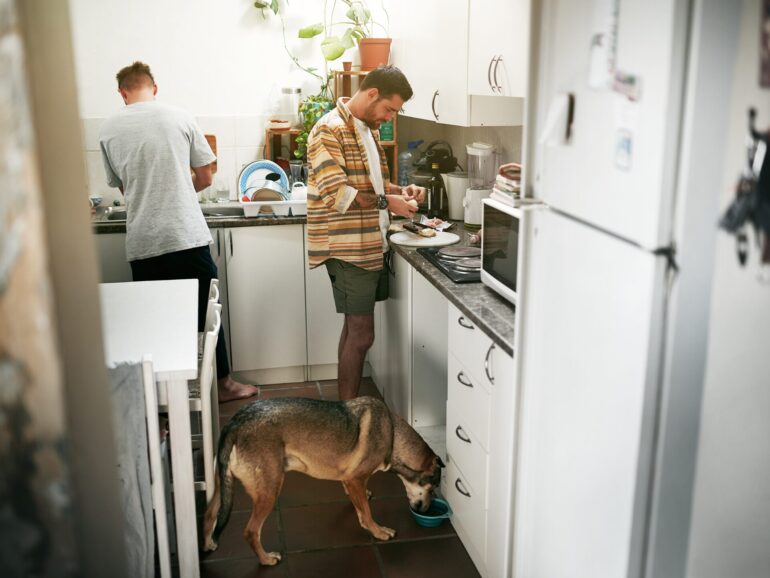Nine in 10 (88%) young renters said they had lived with a ‘housemate horror’, according to research from Barclays.
Clashes over shared-space rules were common, with a third (33%) admitting they may have been a problem themselves.
Top complaints among Millennials and Gen Z were playing loud music or watching TV at unsociable hours (30%), housemates leaving dirty dishes, mugs or cutlery in the sink (29%), leaving dirty dishes, mugs or cutlery in their bedroom (27%) and avoiding cleaning duties and household chores (26%).
25% said housemates regularly had partners staying over without paying more for bills.
Other issues included avoiding taking out the rubbish or recycling (24%), hosting frequent guests or late-night gatherings without asking (23%), leaving hair or mess in the bathroom (21%) and hogging the shower or bathroom at peak times (20%).
Using electrical appliances at unsociable hours like hoovers or blenders was reported by 20%.
Modern annoyances included living with people who vape or smoke indoors (17%) or those who game late at night (19%).
18% said they had experienced housemates who bombard group chats with reminders or passive-aggressive messages, and 12% had housemates who filmed social media content in communal areas.
Millennials often complained about ‘permanent plus-ones’ – partners who stayed over without contributing to bills (27%).
Blender use at odd hours bothered 21%, while 18% said housemates fixated on trends or gossip.
These frustrations led 62% of Gen Z and Millennial renters to say they planned to leave their current house-share within a year. 65% would rather pay more to live alone, and 68% said sharing had made them more determined to buy their own home.
45% had already started looking into mortgages or first-time buyer (FTB) schemes.
64% said housemate problems had cost them money, with an average extra spend of £553.20 a year due to unpaid bills or damages.
86% used passive-aggressive tactics.
This included moving items to inconvenient places (29%), using the silent treatment (27%), rearranging things to highlight a mess (26%), or letting the washing up pile up (21%).
24% left notes or hints around the house, and 17% delayed taking out rubbish until the smell forced action.
Parents were also surveyed, with only 11% suspected their children might be problem housemates.
More than half (51%) worried about their children living in shared houses.
22% would rather help their child buy a home than see them continue renting, while 20% wished they could but lacked the funds.
42% of young renters were considering moving back in with parents to escape difficult housemates. 35% were seeking financial support from family to move out.
Dr Becky Spelman, psychologist and founder of Private Therapy Clinic, said: “Even the best friendships are tested when you live together.
“Sharing a home can be both comforting and challenging, because our different routines, habits and emotional needs inevitably collide.
“Small things can start to feel personal, when really, they’re often about people protecting their own comfort or managing stress.”
Spelman added: “The healthiest way to navigate these moments is through open, respectful communication rather than silence or resentment.
“Modern house-sharing can be intense, but it also helps us learn patience, empathy and boundaries.
“It’s completely normal to crave independence or dream of your own space; that’s not a rejection of your friendships, it’s a natural step in adult life and personal growth.”
Jatin Patel, head of mortgages, savings and insurance at Barclays, said: “House-sharing is a rite of passage for many young adults, but the reality of splitting bills, chasing rent payments and covering extra costs due to housemate issues is making young renters think more seriously about their own financial future.
“It’s no surprise so many renters want to explore how they could buy a place of their own, but saving for a deposit is the main barrier they face.
“While families often want to help, they can’t always afford to gift money, so Barclays Mortgage Boost bridges that gap, helping first-time buyers turn aspirations about ‘one day owning a place’ into a real plan for home ownership.”



